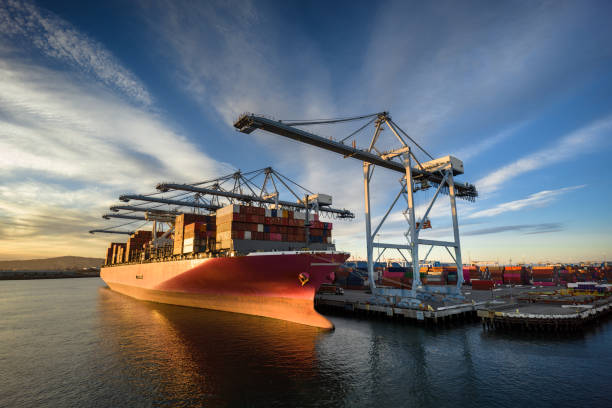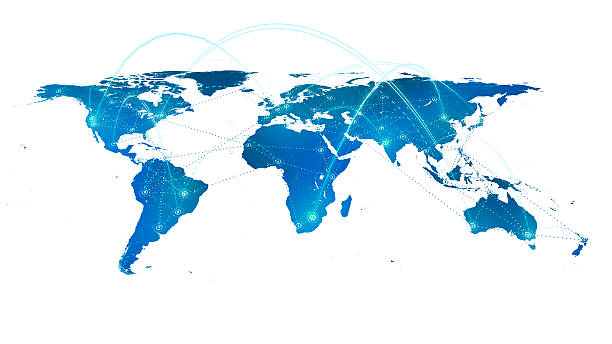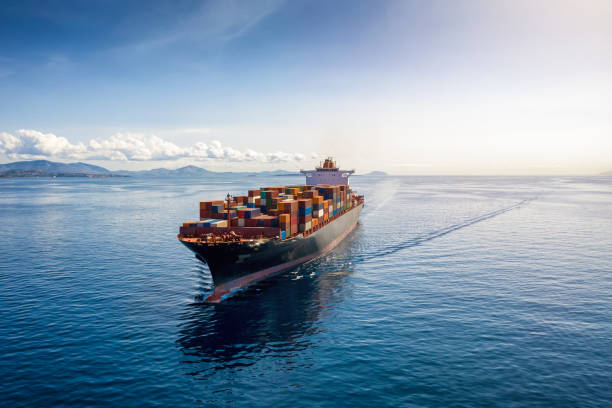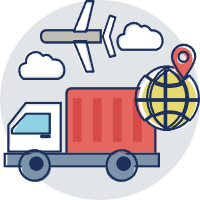Whether you're a startup with global aspirations or an established enterprise aiming to diversify into new territories, expanding into international markets is one of the most promising ways to scale. However, global expansion also comes with challenges—logistics being a major one.
That’s where a worldwide logistics provider plays a critical role. These specialized companies offer global logistics solutions that streamline shipping, customs, warehousing, and last-mile delivery—ensuring your products reach new markets efficiently, safely, and on time.
Let’s explore how the right logistics partner can fuel your market expansion strategy and give you a competitive edge across borders.

1. Strategic Supply Chain Planning for Global Markets
Before entering a new market, it’s crucial to build a resilient supply chain strategy. A reliable worldwide logistics provider offers end-to-end visibility, demand forecasting tools, and route optimization tailored to the nuances of international trade.
Experienced providers will help you assess:
Regional demand and consumption patterns
Trade policies and duties
Optimal shipping modes (air, ocean, rail, or multimodal)
Cost-effective warehousing and distribution hubs
With their deep industry expertise, they can help reduce risks and ensure your global logistics solutions are aligned with your go-to-market goals.
2. Simplifying Customs Compliance and Documentation
Each country has its own complex web of import/export regulations. Missteps in customs documentation or incorrect tariff classification can result in shipment delays, fines, or even product seizures.
A global logistics partner will:
Handle all cross-border logistics solutions
Ensure your shipments meet local and international trade regulations
Automate documentation for efficiency and compliance
Assist in duty optimization through FTAs (Free Trade Agreements)
By letting logistics professionals manage customs, you can avoid bottlenecks and ensure a smooth market entry.
3. Cost-Efficient Global Freight Forwarding
Whether you're shipping small parcels or full container loads, managing international freight requires a fine balance of speed, cost, and reliability. A worldwide logistics provider delivers flexible global freight forwarding options tailored to your needs.
Key advantages include:
Negotiated rates with air and ocean carriers
Consolidation services for LCL (less than container load) shipments
Real-time tracking and ETA transparency
Multi-route planning to avoid high-tariff or delay-prone routes
These providers work closely with international partners, customs brokers, and carriers to ensure your cargo moves across borders seamlessly, allowing you to focus on sales and customer experience.

4. Local Warehousing and Distribution in Target Markets
Once your goods arrive, the next challenge is local fulfillment. Having physical infrastructure—or partners who do—can make or break your brand in a new region.
A professional logistics provider offers:
Bonded and non-bonded warehousing
Inventory management and local fulfillment
Reverse logistics for returns or recycling
Last-mile delivery coordination
Their global network allows for scalable warehousing across continents, ensuring your products are closer to your customers. This not only reduces shipping time and cost but also enhances customer satisfaction.

5. Scalable and Tech-Driven Logistics Infrastructure
Modern logistics providers rely heavily on digital tools and automation. From AI-powered route optimization to blockchain-secured documentation, these innovations ensure better performance, security, and transparency.
Leading providers integrate with your ERP, eCommerce, or CRM systems to give you real-time insights on:
Inventory status across global warehouses
Delivery timelines and freight tracking
Carbon footprint data for sustainability
Customer service metrics by region
With a robust tech-driven global logistics solution, your business becomes more agile and responsive to market demands.
6. Risk Management and Business Continuity
Expanding into new markets involves geopolitical, financial, and environmental risks. Global disruptions—like pandemics, natural disasters, or port strikes—can halt operations if you lack a contingency plan.
A worldwide logistics partner helps mitigate these risks by:
Offering alternative routing and contingency shipping
Distributing inventory across multiple hubs
Providing insurance coverage and security protocols
Monitoring geopolitical trends and adjusting operations accordingly
With a well-prepared logistics partner, your supply chain stays resilient even during disruptions.
7. Enhanced Customer Experience and Localized Delivery
Speed, reliability, and transparency are critical factors in building trust with new customers. A worldwide logistics provider that offers localized cross-border logistics solutions ensures that your brand delivers on its promise—no matter where your customers are.
They can provide:
Local-language customer support
Fast delivery options with local couriers
Return policies adapted to regional norms
Branded packaging for consistent brand identity
These personalized services make a lasting impression, helping your brand stand out in competitive global markets.

Conclusion: Logistics as a Growth Catalyst
Global expansion is more than just selling to new customers—it’s about building a sustainable, efficient, and scalable operation that adapts to each new region. A strategic partnership with a worldwide logistics provider empowers you to navigate international complexity with confidence.
From global freight forwarding and compliance to warehousing and customer delivery, the right partner delivers the foundation you need to grow faster, smarter, and stronger.




















